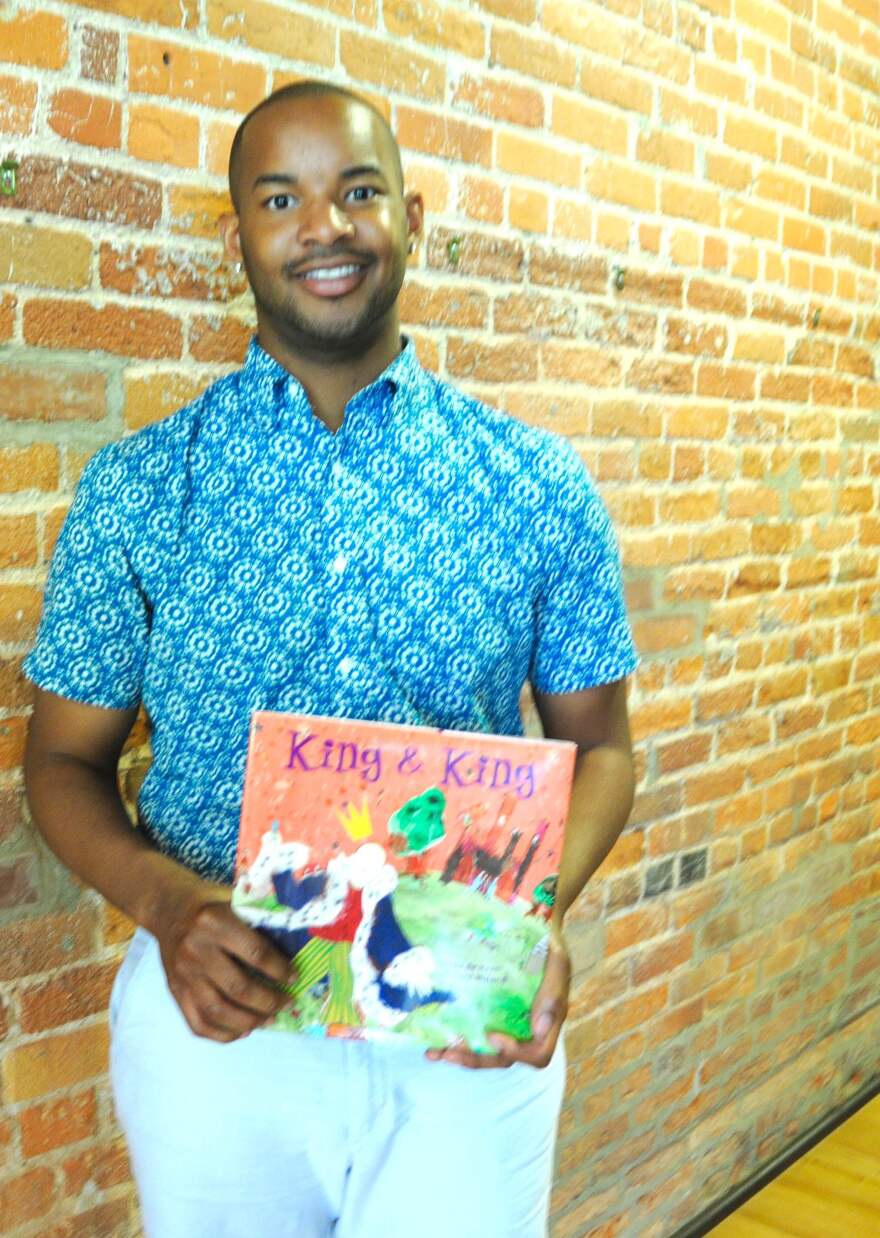The problem started on what Omar Currie thought was a normal day.
It eventually ended with Currie and a vice principal at Efland-Cheeks Elementary School resigning. What prompted the controversy? Currie chose to read a fairy tale titled “King & King" to his class.
Omar Currie is a University of North Carolina graduate who learned of “King & King” during his training as a teaching fellow. He read the book to his third grade students at Efland-Cheeks in an effort to teach understanding and empathy as they struggled with a bullying problem.
Currie dropped his students off for P.E. one day, but when he came to pick them up, a couple students were crying. Currie first spoke to the male student.
“He said some students had referred to him as being gay in a way that hurt his feelings,” Currie says. "He also said they kept telling him, ‘Hey girl, come here. Hey woman, throw me the ball.’ Really using some words to effeminize him.”
Then Currie spoke to the upset female student. She stuck up for the other boy, but Currie says the bullies then swiftly turned their attention to her.
Currie thought about ways to handle the situation and remembered “King & King” from his collegiate years. The Efland-Cheeks media center didn’t have a copy, but Vice Principal Meg Goodhand did.
Here Is How The Story Goes
The book is of a prince who is set to become the king. His mom, the queen, brings in female suitors for him, but the prince doesn’t want to marry any of them. Instead, he chooses the brother of one of the princesses.
“It just seemed natural that I would address the issue that the student was being bullied about,” Currie says. “There has been lots of criticism by parents that ask why I did not read a book directly related to bullying. When we are trying to address bullying, we are trying to attack that root cause of that behavior.”
After reading the story, Currie discussed the morals of the story, and the class agreed on a couple core principles:
- Treat others the way you want to be treated
- Treat others with respect
'There has been lots of criticism by parents that ask why I did not read a book directly related to bullying. When we are trying to address bullying, we are trying to attack that root cause of that behavior.'
But one student spoke up, saying he felt uncomfortable with the idea of gay marriage.
“I explained to them that it was natural to feel uncomfortable when you’re presented with something new but then directed him to our conversation about what the moral of the story was,” Currie says.
Later that night, Currie received a call from an administrator who had heard from an upset parent. The administrator said Currie should’ve sought parent permission before reading the book and equated his lesson to a puberty talk. For Currie, this was offensive.
Currie later talked to the parents. The parent said they wished they had prior notice about the book so they could have a conversation with their child, but had no issue once learning the context. However, many other parents caught wind of the situation and spoke up.
“My most vocal critics have been those individuals outside of the classroom,” Currie says. “I think it’s really just because they didn’t have a relationship with me and all of a sudden, the conversation shifted about my decision to read this book about bullying and all of a sudden my sexuality is brought into it. There’s this idea that I’m trying to push some type of agenda.”
The Defense's Case Rests
After the incident, criticism continued to grow and eventually turned into hate mail. A father of a student even protested on campus.
“I felt like there was no one in the district trying to protect me in this situation,” Currie says.
But not all of the feedback has been negative as Currie explained he’s received more support than criticism. In fact, the problem that led to Currie’s resignation was not the parental complaints, but rather the school district’s response, or lack thereof.
“It just became very apparent that the district was not going to foster an inclusive environment for me to work,” Currie says. “I believe more than anyone else parents have rights, but I don’t think the rights of parents should ever infringe on our abilities to keep students safe.”
Currie and Goodhand have now resigned, and parents have dropped the grievances to ban the book. Orange County has instituted a new policy that each book read to students must be presented to parents beforehand.
“I think that policies like that give parents the option to opt out of conversations – difficult conversations – that keep our students safe,” Currie says.



